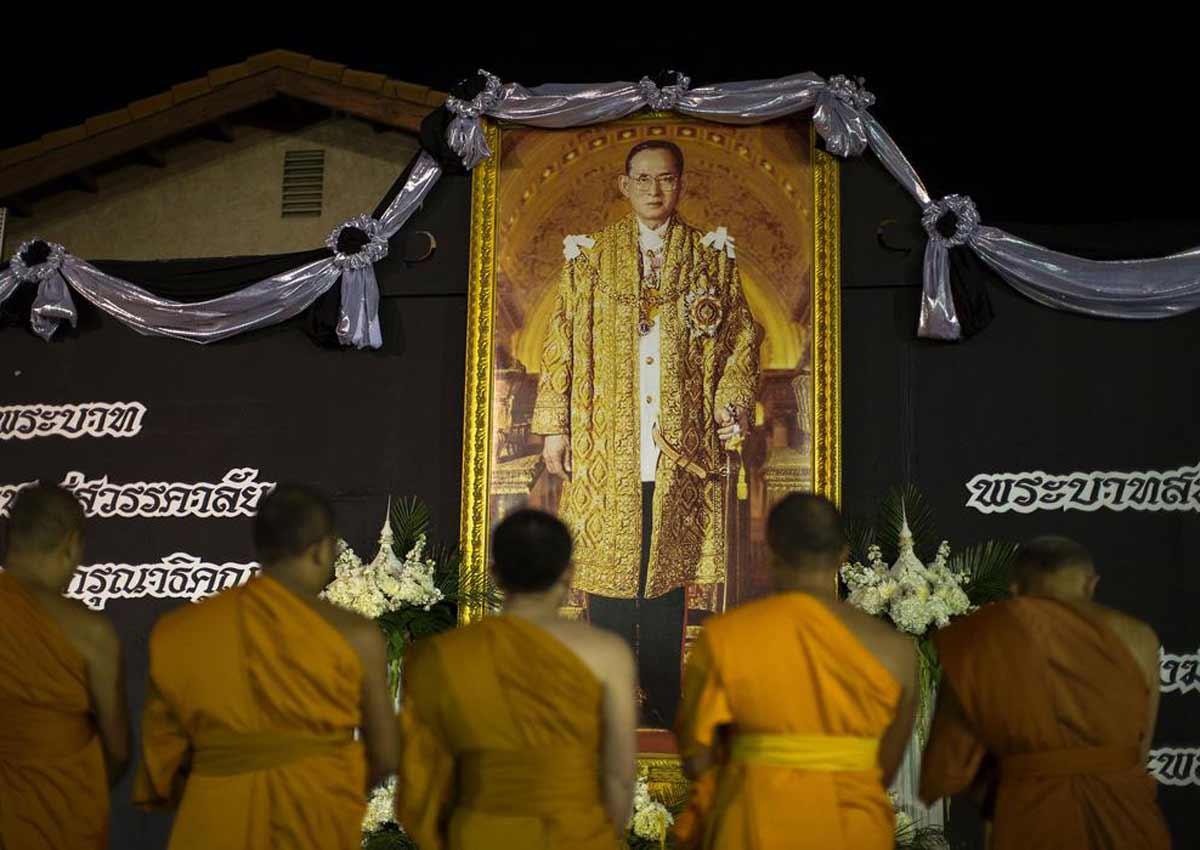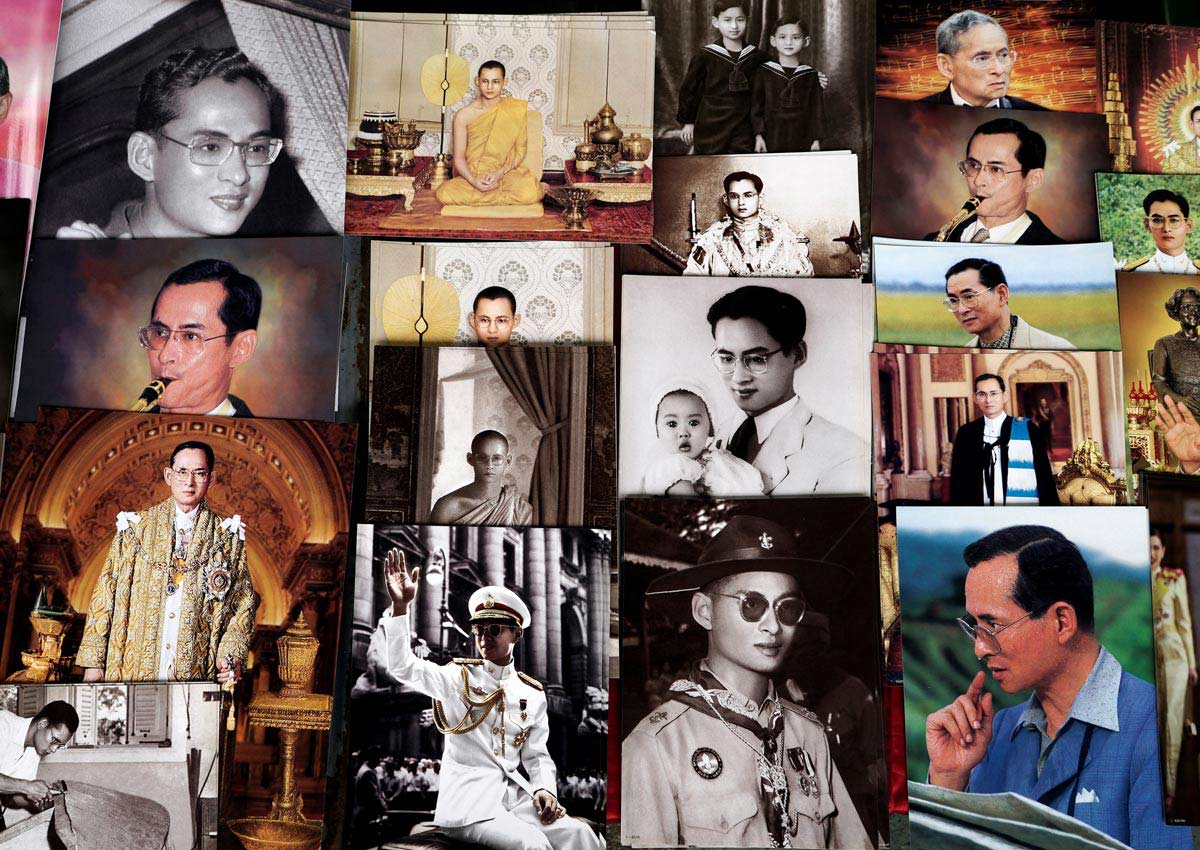Bangkok – Thais should “socially sanction” those accused of defaming the monarchy following the death of King Bhumibol, the junta’s justice minister said Tuesday, as he vowed to hunt down critics both at home and overseas.
The death of the world’s longest reigning monarch on Thursday has left the nation bereft of its key pillar of unity and seen mass outpourings of grief from black-clad Thais.
But it has also unleashed ultra-monarchist forces, including mobs and online crusaders scouring the web bent on punishing anyone perceived to have insulted the monarchy.
“There is no better way to punish these people than to socially sanction them,” justice minister Paiboon Koomchaya told reporters on Tuesday, as he vowed to “pursue those people who violate the law”.
His message comes amid a growing number of cases of vigilantism meted out by royalist Thais on people accused of having insulted the monarchy.
On Sunday a woman on Samui island was forced by police to kneel below a portrait of King Bhumibol in front of a baying mob after she allegedly posted an insulting comment about the monarchy on Facebook.
She was later charged with lese majeste.
Similar mobs formed on the southern island of Phuket and in nearby Phang Nga province sparked by alleged comments.
Others on social media have publicly berated those deemed not to be sufficiently mourning or failing to wear black clothes.
The latter – dubbed “black shaming” – has been criticised by the junta who say poorer Thais may not be able to afford a new wardrobe of black clothing and that people mourn in different ways.
Thailand’s monarchy is protected by a draconian lese majeste law that outlaws criticism with punishments of up to 15-years in jail for each insult uttered.
Prosecutions have surged under the military, who seized power two years ago, with record breaking sentences handed down in some cases.
That has made detailed discussion or debate about the monarchy’s role – and its future after Bhumibol’s 70-year reign – all but impossible.
Media inside Thailand, both local and foreign, must heavily self-censor.
While debate on the monarchy has been shut down inside Thailand for years, authorities struggle to censor critics or media based overseas.
But Paiboon said the junta would renew extradition requests for Thais abroad – something that is unlikely to carry traction with foreign governments in those countries where lese majeste is not a crime.
“It’s difficult to bring them to prosecution in Thailand,” Paiboon said. “But we must do it to stop their movement and reproduction, we will do our best.”





































































































